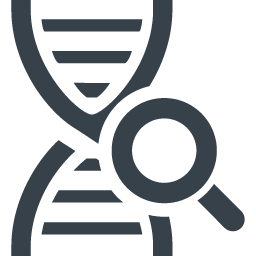 SNORD118 gene related symptoms and diseases
SNORD118 gene related symptoms and diseases
All the information presented here about the SNORD118 gene and its related diseases, symptoms, and test panels has been aggregated from the following public sources: OMIM,NCBIGENE,HGNC, Mendelian Rare Disease Search Engine.
Top 5 symptoms and clinical features associated to SNORD118 gene
| Symptoms // Phenotype | % Cases |
|---|---|
| Intellectual disability | Very Common - Between 80% and 100% cases |
| Abnormality of the cerebral white matter | Very Common - Between 80% and 100% cases |
| Loss of speech | Very Common - Between 80% and 100% cases |
| Hemiplegia | Very Common - Between 80% and 100% cases |
| Leukoencephalopathy | Very Common - Between 80% and 100% cases |
Other less frequent symptoms and clinical features
Patients with SNORD118 gene alterations may also develop some of the following symptoms and phenotypes:Commonly - More than 50% cases
- Leukodystrophy
- Hemiparesis
- Abnormality of extrapyramidal motor function
- Cerebral calcification
- Gastrointestinal hemorrhage
- Gliosis
- Inability to walk
- Abnormality of movement
And 14 more phenotypes, you can get all of them using our tools for rare diseases.
Rare diseases associated to SNORD118 gene
Here you will find a list of rare diseases related to the SNORD118. You can also use our tool to get a more accurate diagnosis based on your current symptoms.
LEUKOENCEPHALOPATHY, BRAIN CALCIFICATIONS, AND CYSTS; LCC
Alternate names
LEUKOENCEPHALOPATHY, BRAIN CALCIFICATIONS, AND CYSTS; LCC Is also known as labrune syndrome
Description
Leukoencephalopathy, brain calcifications, and cysts (LCC), also known as Labrune syndrome, is characterized by a constellation of features restricted to the central nervous system, including leukoencephalopathy, brain calcifications, and cysts, resulting in spasticity, dystonia, seizures, and cognitive decline (summary by Labrune et al., 1996).See also cerebroretinal microangiopathy with calcifications and cysts (CRMCC ), an autosomal recessive disorder caused by mutation in the CTC1 gene (OMIM ) that shows phenotypic similarities to Labrune syndrome. CRMCC includes the neurologic findings of intracranial calcifications, leukodystrophy, and brain cysts, but also includes retinal vascular abnormalities and other systemic manifestations, such as osteopenia with poor bone healing, a high risk of gastrointestinal bleeding, hair, skin, and nail changes, and anemia and thrombocytopenia. Although Coats plus syndrome and Labrune syndrome were initially thought to be manifestations of the same disorder, namely CRMCC, molecular evidence has excluded mutations in the CTC1 gene in patients with Labrune syndrome, suggesting that the 2 disorders are not allelic (Anderson et al., 2012; Polvi et al., 2012).
Most common symptoms of LEUKOENCEPHALOPATHY, BRAIN CALCIFICATIONS, AND CYSTS; LCC
- Intellectual disability
- Seizures
- Global developmental delay
- Ataxia
- Spasticity
More info about LEUKOENCEPHALOPATHY, BRAIN CALCIFICATIONS, AND CYSTS; LCC
Search interest in SNORD118
Potential gene panels for SNORD118 gene
Leukodystrophy and Leukoencephalopathy Panel Panel
 Finland.
Finland.
By Blueprint Genetics Leukodystrophy and Leukoencephalopathy Panel that also includes the following genes: SCO1 AIMP1 SOX10 TREX1 GFM1 NDUFAF5 SAMHD1 NFU1 MRPL44 MLC1
More info about this panel Finland.
Finland.
Comprehensive Epilepsy Panel Panel
 Finland.
Finland.
By Blueprint Genetics Comprehensive Epilepsy Panel that also includes the following genes: SCN1A SCN1B SCN2A SCN8A SCN9A SCO1 AIMP1 ST3GAL3 ST3GAL5 SLC25A1
More info about this panel Finland.
Finland.
If you liked this article maybe you will also find interesting the following in-depth articles about other rare diseases, like SPTLC2 TBX15 AP3B2 LAS1L COQ2